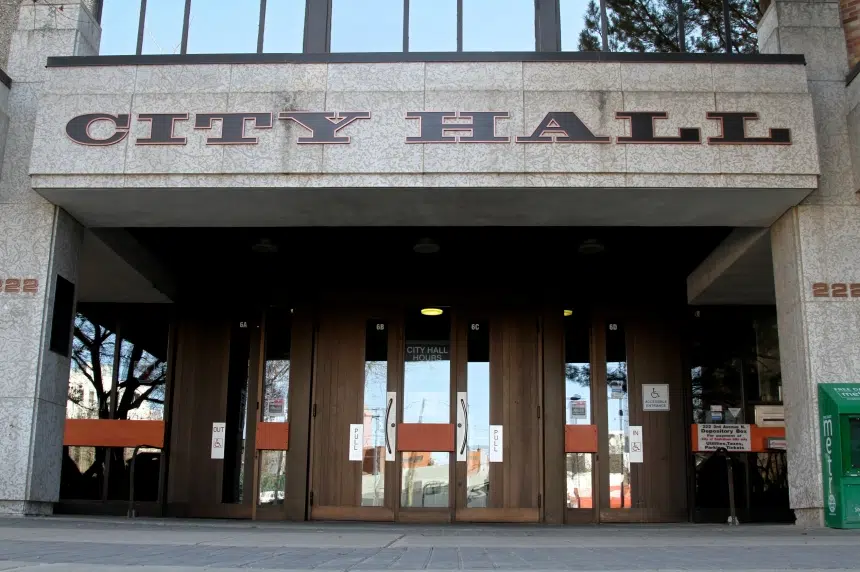Saskatoon councillors will decide Monday if a large commercial-residential project on Parcel YY, next to River Landing, will receive a property tax break.
The developers behind the multi-million dollar hotel-office-condominium project want council to approve a five year tax abatement on the office and commercial parking spaces in addition to the condominiums.
The tax break is an meant to be an incentive for developers who must put up large amounts of capital to build a project in the first place. It allows them to pay property taxes as if the land was undeveloped for up to five years after a project is done.
Under the city’s current infill policies, residential properties throughout Saskatoon are able to apply for a tax abatement of up to five years, but the downtown core is the only place where commercial spaces can get the same deal. Parcel YY’s condos are eligible for the abatement, but because it sits on the south side of 19th Street, it is on the riverfront, not in the downtown core and would not normally be able to apply for a commercial tax abatement. The developers have asked for an exception.
The 155-room hotel would not be eligible for tax abatement.
Developers also want the city to give them an annual grant, estimated at $34,000, to offset the property taxes of a proposed public plaza that would be built on the company’s land on the understanding that it would provide “reasonable” public access. The city has never before supported a tax break for
City administration doesn’t know the amount of property taxes the city will not receive if the proposal is approved because it’s unclear how much value the project would add to the land.
But in it’s report, the administration said it supports the requests citing the “tangible risk” and “large amount of up-front capital” associated with building such a large project
Both requests were unanimously approved at last month’s planning, development and community services committee which includes four councillors and Mayor Don Atchison. The support of one more councillor is needed at Monday’s meeting.
“This is just falling in line with the rest of the downtown area,” Atchison said Friday. “One could say we don’t want to (build) anything like this, and 10 years later still not have anything. So how much further ahead are you?”
Atchison also supports the grant for the public plaza because he said he feels those who use a portion of their land for public use should not have to pay taxes on it.
Coun. Zach Jefferies said he wants to see development on the land, but has questions about how the plaza would remain available to the public on a consistent basis. He also has questions about how the abatement will affect the city’s ability to recover the costs of revitalizing and maintaining River Landing.
When the $82-million River Landing revitalization was undertaken, the city said it would recover its portion of the cost through land sales and maintain the space with property taxes.
Le Fevre and Company president Chris Le Fevre just finished his project The Banks, located next to the Farmers Market and just a few blocks from Parcel YY. His condominiums received a tax abatement but the commercial space below did not. He calls the Parcel YY commercial tax abatement “naive” and “absurd.”
“I think it changes the level playing field and I think it’s a very dangerous precedent to do that in this city. I think every body could have their hands up for the same thing,” he said.
Atchison said he doesn’t think the project sets a bad precedent because there is no talk of extending the commercial tax abatement despite many offices going up in suburban areas.
Le Fevre also criticized the public plaza request saying large projects like the one proposed typically include plazas and developers need to be prepared to absorb the cost. He said he feels the city’s desperation to develop the land has led them to support a bad policy.
It is not unheard of for the city to issue commercial land tax abatements. In the early 2000s, in an effort to spur growth, the city launched a Municipal Enterprise Zone project that granted rebate building permits, tax abatements, and grants to both commercial and residential projects in neighbourhoods surrounding the downtown. The project was canceled around 2007 once development hit a boom period.











